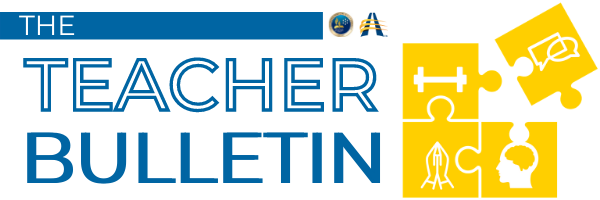Drop These 5 Education Myths and Empower Your Students This Year
Teachers face a unique set of constantly changing challenges, from policy to student behavior. In the new year, it’s essential to let go of education myths that can hinder learning. By recognizing outdated beliefs and embracing more effective strategies, teachers can empower their students and ensure they reach their highest potential.
Are you still clinging to any of these five education myths? Let's explore the top five and discuss why they’re no longer relevant to today’s classroom.
Myth #1: Education Should Be a Solo Activity
In many classrooms, students are taught to work independently—especially when completing assignments. However, recent research suggests that group work is actually more effective than solo work in certain contexts. Students learning in a collaborative situation had greater knowledge acquisition, retention of material, and higher-order problem-solving and reasoning abilities than students working alone.
Group work teaches skills like collaboration, problem-solving, communication, and organization—skills that will serve students well in college or the workplace. So instead of assigning individual tasks to each student this year, try breaking them into pairs or small groups so they can learn from each other while completing their assignments.
Myth #2: Tests Are the Best Way to Measure Student Progress
Standardized tests have long been used in K-12 classrooms to measure student progress. While these tests can be helpful for assessing how well students understand a particular concept or topic, relying solely on tests can lead to an incomplete picture of student performance.
“Once teachers and students are compelled to focus only on what can be reduced to numbers, such as how many grammatical errors are present in a composition or how many mathematical algorithms have been committed to memory, the process of thinking has been severely compromised and the best programs and classes can’t survive.”
Tests don't always accurately reflect how much knowledge a student has retained over time or what strategies they've developed for tackling unfamiliar problems. That's why it's crucial to supplement test scores with other forms of assessment, such as projects and presentations throughout the school year; these activities help promote critical thinking and foster creativity while providing valuable data on student progress.
Myth #3: Teachers Should Always Have All The Answers
It’s easy for teachers to feel pressure to come up with all the answers—after all, we’re expected to know everything about our subject matter! But this isn’t realistic; even experienced teachers sometimes need help from their colleagues or outside experts to answer questions from their students.
This year, make it part of your teaching philosophy to be open about not knowing something when necessary; rather than pretending you have all the answers, use this opportunity as an opportunity for your students (and yourself!) to learn something new together. You're competing against Google, Quora, and a million other sites that can provide answers in a milli-second. Be better at provoking questions, and stop constantly battling the machines!
Myth #4: Homework Improves Student Learning
This one is controversial; some researchers argue that homework can help reinforce concepts and be a useful review tool, while others argue it’s ineffective at best and detrimental to student learning at worst.
If you decide to assign homework this year, make sure you're doing it for the right reasons: to provide additional practice in a concept or skill, to provide an opportunity for students to explore a topic in more depth, and to promote self-guided learning. Avoid assigning homework simply as a way to “keep students busy;” if you’re not sure how the assignment will benefit your students, it’s probably best to leave it out.
Myth #5: You Alone Can Impact Student Achievement
As teachers, we’d like to believe that our efforts are the sole factor in determining student success. But this isn’t true—a multitude of factors outside school walls affect how well students learn and perform, including family dynamics and environmental stressors.
Rather than feeling overwhelmed by everything you can’t control, focus on what you can do: build relationships with your students, provide a safe learning environment, and find regular ways to communicate and engage with families and other community members. These small steps will make a big difference in your classroom!
We make it easy to send advice and updates to your classroom parents by providing curated links in our weekly teacher newsletter - sign up here for free.
Let's Make This Year a Growth-Focused One
As educators in 2023 and beyond, it's important that we stay flexible and open-minded when it comes to our approaches in the classroom. By letting go of outdated education myths like those outlined here and embracing more effective strategies—like group work and creative assessments—we can empower our students by helping them reach their highest potential this year and beyond!







